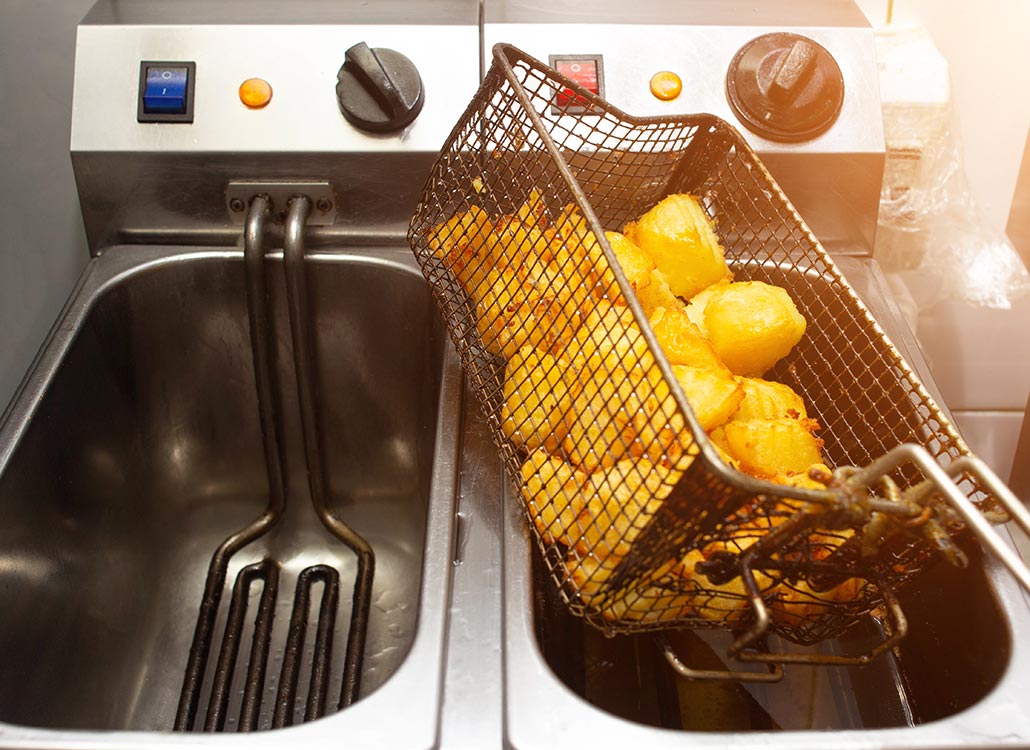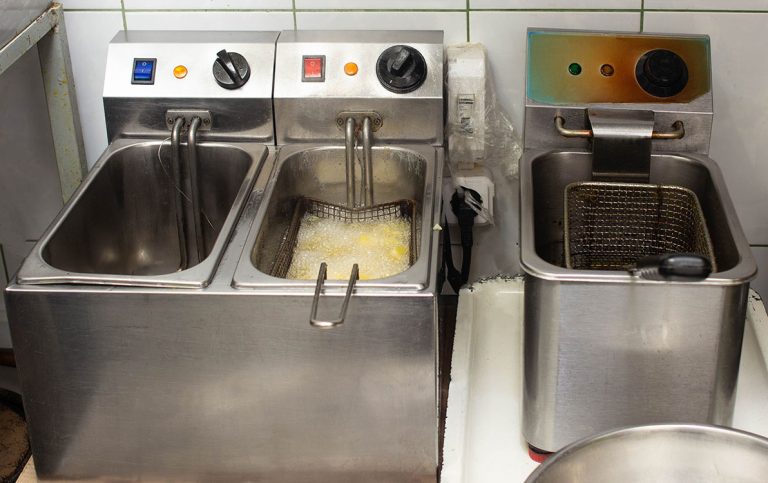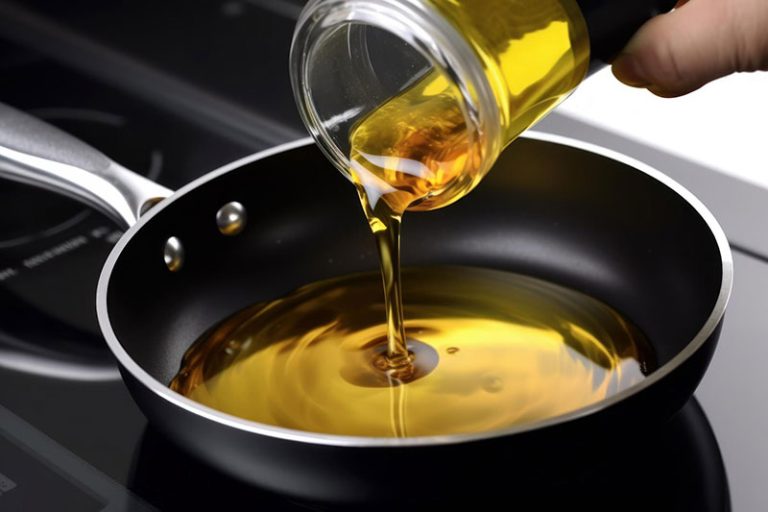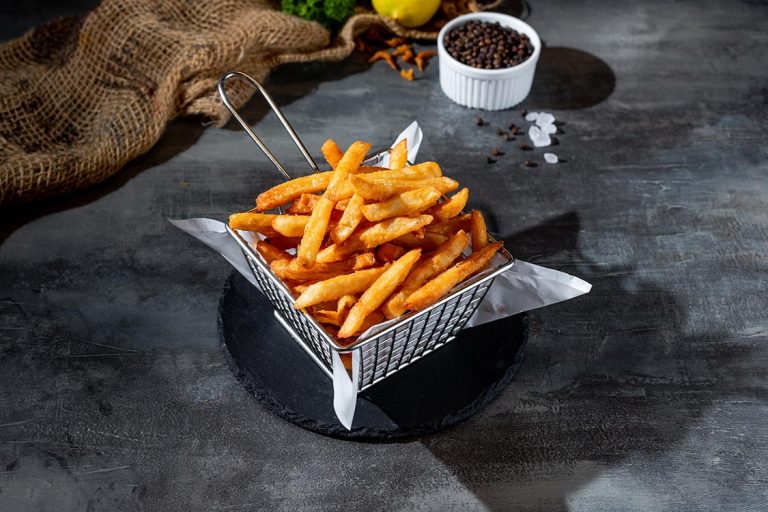The Hidden Risks of Improper Used Cooking Oil Disposal: How to Protect Your Restaurant
The Financial Risks of Improper Oil Disposal
Many restaurants don’t realize that disposing of used cooking oil incorrectly can lead to major unexpected expenses. Here’s how:
- Plumbing Disasters & Costly Repairs – Pouring oil down the drain causes grease buildup, clogs, and sewer backups, leading to expensive plumbing bills.
- Fines & Legal Penalties – Improper disposal violates local, state, and federal environmental laws, resulting in hefty fines.
- Lost Business Due to Kitchen Shutdowns – Grease-clogged drains or enforcement actions can temporarily or permanently close your restaurant.
- Increased Waste Management Costs – Paying for emergency grease trap pumping costs far more than regular maintenance.
A restaurant that ignores proper grease disposal practices will eventually face these avoidable expenses—sometimes adding up to tens of thousands of dollars annually.
Environmental and Health Consequences
Beyond financial risks, improper oil disposal severely impacts the environment and public health. Here’s how:
- Fatbergs & Sewer Blockages – Used cooking oil hardens in pipes, forming fatbergs that block municipal sewage systems. Cities worldwide spend millions annually to remove them.
- Water Contamination & Pollution – When oil enters storm drains and waterways, it depletes oxygen levels and harms aquatic life.
- Fire Hazards – Accumulated grease in drains or dumpsters increases the risk of fires, putting your staff and customers in danger.
By prioritizing responsible oil disposal, your restaurant helps protect the environment while avoiding negative publicity from regulatory action.
How to Ensure Your Restaurant Stays Compliant
Navigating the legal requirements for used cooking oil disposal can seem complex, but following these best practices ensures compliance:
- Understand Local Regulations – Every city has specific grease disposal laws. Violations often result in fines ranging from hundreds to thousands of dollars.
- Use a Licensed Grease Collection Service – Only work with EPA-compliant, fully permitted companies that follow safe disposal and recycling standards.
- Maintain Detailed Disposal Records – Keep logs of oil collection dates, volumes, and service provider details to prove compliance.
- Regular Grease Trap Cleaning – Avoid backups and regulatory issues by scheduling routine grease trap maintenance.
- Train Your Staff – Employees should never pour grease down the drain and must properly store used oil for collection.
Restaurants that follow these compliance steps reduce risks and maintain smooth operations.
What to Look for in a Reliable Grease Collection Partner
Many restaurants fall into the trap of choosing the cheapest disposal service, only to later face compliance violations. Here’s what you should demand from a trustworthy used cooking oil collector:
- Licensed & Insured – Ensure they comply with local and national waste disposal regulations.
- Proper Documentation – A reputable provider offers detailed tracking and disposal logs.
- Transparent Recycling Practices – The best collectors convert oil into renewable resources, rather than illegally dumping it.
- Scheduled Pickups – Regular service prevents overflow and last-minute compliance issues.
Longview Environmental offers certified, reliable grease collection that keeps restaurants compliant while helping them turn waste into profit.
Preventing Costly Mistakes: A Step-by-Step Approach
To avoid the financial, legal, and environmental pitfalls of improper grease disposal, follow these key steps:
- Establish a Grease Management Plan – Set clear procedures for oil collection, storage, and disposal.
- Schedule Regular Maintenance – Prevent blockages and plumbing failures with routine grease trap cleaning.
- Invest in Secure Storage Solutions – Use leak-proof, theft-resistant grease bins.
- Partner with a Reliable Grease Collector – Choose a company that offers compliance, transparency, and competitive rebates.
- Educate Your Staff – Implement mandatory grease disposal training to ensure consistency.
With these measures in place, your restaurant avoids costly mistakes and builds a reputation for sustainability and compliance.
Beyond Compliance: The Competitive Advantage of Proper Grease Management
Smart restaurants don’t just see grease disposal as a legal requirement—they turn it into a competitive advantage.
- Lower Operating Costs – Proper oil handling reduces plumbing repairs, emergency maintenance, and waste fees.
- Enhanced Sustainability Reputation – Customers increasingly prefer eco-friendly restaurants that emphasize sustainable practices.
- Potential Revenue from Recycled Oil – High-quality used oil can be sold through rebate programs, adding passive income to your business.
By partnering with Longview Environmental, your restaurant ensures full compliance, financial savings, and a commitment to sustainability.
Conclusion: Protect Your Restaurant with Smart Grease Management
Improper used cooking oil disposal is a silent but costly threat to restaurants. Without proper grease management, you risk plumbing failures, legal penalties, environmental damage, and even business closure. However, by adopting a structured disposal strategy, partnering with a compliant grease collection service, and educating your staff, your restaurant stays ahead of regulations and turns waste into an opportunity.
With Longview Environmental, you don’t have to worry about fines, clogged pipes, or compliance issues. Our expert team handles every aspect of grease collection and recycling so you can focus on running a successful restaurant.
Take control of your grease management today. Contact Longview Environmental for a consultation and let’s safeguard your business from unnecessary risks.








